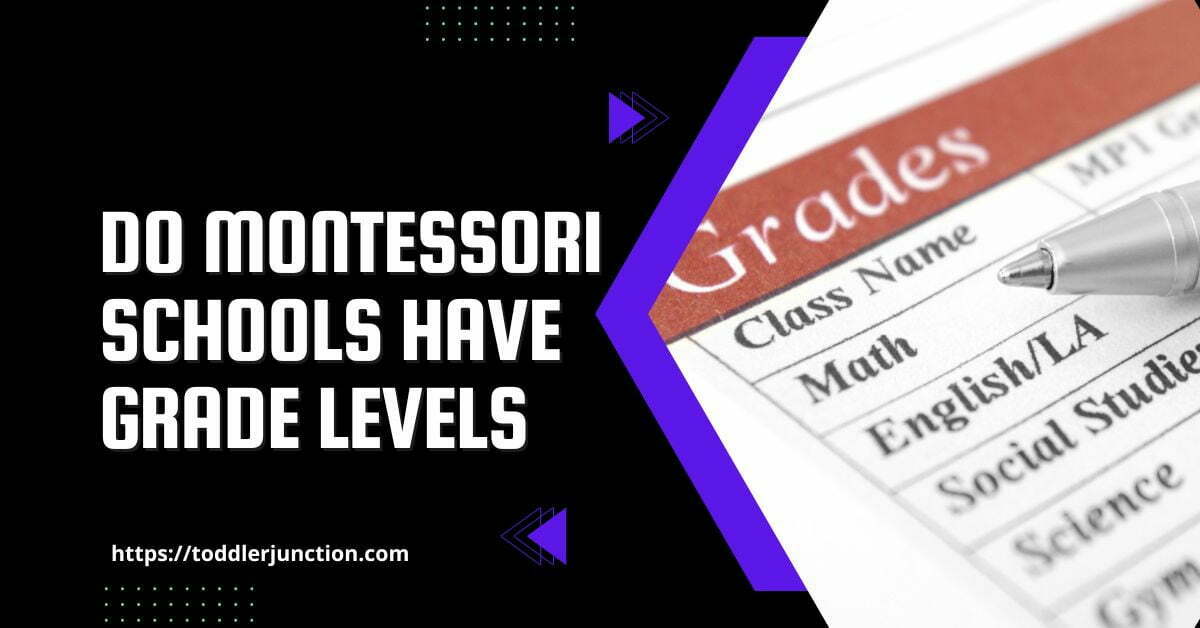A Montessori school is a unique form of training for children. The “letter-grading” system used in regular schools does not apply in Montessori classes. They emphasize the achievements of their students in age-appropriate goals.
Students are given guidance and instruction in courses that interest them. They are motivated to learn academics from the start in an environment that accommodates their learning styles and pace.
Age Groups and Grade levels
At Montessori schools, children are often grouped by age. It allows them to develop at their own pace and build relationships with peers going through similar experiences.
There is no one-size-fits-all approach to grouping students, but most Montessori schools will group children into the following age ranges:
- Infant Community, 8 weeks to 18 months old
- Toddler Programs, 18 months to 3 years old
- Primary programs, 3 to 6 years old
- Lower Elementary Program, 6 to 9 years old
- Upper Elementary Program, 9 to 12 years old
Some Montessori schools also offer programs for children up to 18 years old.
How Montessori Students Are Graded
At Montessori schools, students are not graded on a curve. Instead, their progress is based on a set of developmental milestones.
In the early years, students are assessed using checklists or rubrics. As they get older, more formal evaluations may be used. But in all cases, the focus is on measuring each child’s progress rather than comparing them to their classmates.
Some parents worry that their child’s academic progress will not be adequately documented without grades. But most Montessori schools keep detailed records of each student’s work and achievements. These records are an essential part of the college application process.
Why don’t Montessori teachers give grades?
One of the principles of Montessori education is that children learn best when they are allowed to progress at their pace. It would not be easy to accurately grade students based on their performance in a Montessori classroom.
Montessori teachers provide feedback to students and parents on a child’s progress, but this feedback is qualitative rather than quantitative. For example, a teacher might say that a child is progressing well in reading or that they have made good progress in math since the last report.
Some parents worry that without grades, their child will not be prepared for the academic rigor they will face in traditional schools. However, studies have shown that Montessori students outperform their peers on standardized tests and are more likely to attend college and have successful careers.

The Pros and Cons of Montessori School Grading
Montessori schools are a unique education option that uses a different learning approach than traditional schools. One of the key differences is how students are assessed and graded.
Montessori schools do not typically use letter or percentage grades but instead focus on more qualitative evaluations. This can be beneficial in some ways but also has some drawbacks. Let’s explore the pros and cons of Montessori grading.
Pros
One of the main advantages of Montessori grading is that it allows students to progress at their own pace. In a traditional school setting, all students are expected to complete assignments and work at the same speed, even if they have different learning needs.
In a Montessori classroom, students can move ahead or take more time on an assignment as needed without worrying about falling behind their peers. This can lead to more individualized and customized education for each student.
Another benefit of Montessori grading is that it often includes more detailed feedback than traditional grades. In a conventional school setting, students might receive a letter grade or percentage score on an assignment but not much other information.
In a Montessori classroom, teachers often provide written comments that explain what a student did well and what areas need improvement. This feedback can be more helpful for students than simply receiving a letter grade.
Cons
There are also some disadvantages to Montessori grading. One potential downside is that it can be less objective than traditional grading methods. When teachers make qualitative evaluations instead of letter grades, there is more room for personal biases to come into play.
Additionally, because Montessori schooling is still relatively new, there is not as much data available on long-term outcomes such as college admission or job placement rates.
This lack of data makes it difficult to compare the effectiveness of Montessori schooling to other education options.
Conclusion
Overall, there are both advantages and disadvantages to the way that Montessori schools assess and grade their students. Parents considering enrolling their child in a Montessori school should weigh these pros and cons before deciding.


